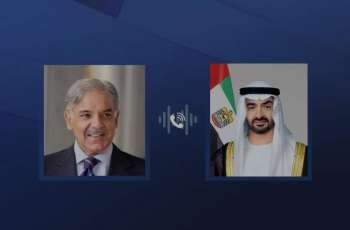BRUSSELS (Pakistan Point News / Sputnik - 31st May, 2019) The INSTEX mechanism, set up by France, Germany and the United Kingdom to facilitate trade exchanges with Iran in the face of US sanctions, was formally launched four months ago, but the parties involved have since criticized the tool as a weak measure with limited capacity to resist unilateral economic restrictions and keep Tehran committed to the 2015 nuclear deal.
The Instrument in Support of Trade Exchanges, or INSTEX, was designed by the three EU nations in late January in order to help maintain trade interactions between Tehran and the remaining Joint Comprehensive Plan of Action (JCPOA or the Iran nuclear deal) signatories, who opposed the US unilateral pullout from the accord, by creating a transaction channel that bypasses Washington's sanctions against Tehran.
Despite the fact that the mechanism has yet to be put into action, a company that will conduct INSTEX transactions is to be set up in Iran and it is still unclear whether at least some European companies will utilize it. The United States has already started threatening the financial vehicle with sanctions.
On Wednesday, the Bloomberg news agency reported that Sigal Mandelker, the US under secretary of the Treasury for terrorism and financial intelligence, urged INSTEX President Per Fischer to "carefully consider the potential sanctions exposure" of the mechanism. She warned that "engaging in activities that run afoul of U.S. sanctions can result in severe consequences, including a loss of access to the U.S. financial system."
The next day, US Special Representative for Iran Brian Hook confirmed that Washington was ready to slap sanctions on the EU instrument, stressing that if "there is a day where there is any sort of any transactions being conducted by INSTEX we expect those to be purely for permitted transactions," such as food and medicine.
It is noteworthy that Washington has threatened to sanction countries that remain committed to the deal, which the United States, represented by then-President Barack Obama, actively helped conclude in 2015.
The agreement was also unanimously endorsed by the UN Security Council through Resolution 2231 as a key to nuclear non-proliferation and regional security.
All agreed that the JCPOA was fully achieving its goals by guaranteeing the peaceful nature of Iran's nuclear program until US President Donald Trump decided in 2018 to pull his country out of the accord and reintroduce harsh sanctions on the Iranian oil sector and every company and country trading with it.
Back then, Europe reacted by updating the Blocking Statute, which bans European companies from fulfilling extraterritorial sanctions, and reaffirming its commitment to the deal and cooperation with Iran.
France, Germany and the United kingdom set up INSTEX in late January. There had not been much news of its operations until now, however.
French diplomatic sources, approached by Sputnik on May 30, mentioned "a range of 3 to 6 months for the system to start working."
Meanwhile, experts previously told Sputnik that companies, large and small, would unlikely embrace the mechanism for fear of losing the possibility of selling their products or services to the United States and that the financial instrument itself would be mainly used for "humanitarian-like aid" for the Islamic republic.
The attempts of the Europeans to circumvent the sanctions were even branded by Iranian Supreme Leader Ali Khamenei as "a bitter joke" back in March, who said that "Europeans stabbed [Iran] in the back."
Finally, the patience of Iran, whose compliance with the 2015 deal has been repeatedly confirmed by the International Atomic Energy Agency, was exhausted. On May 8, exactly a year after the United States left the JCPOA, Tehran announced that it was partially discontinuing its commitments under the deal and gave Europe 60 days to ensure Iran's interests under the agreement. Otherwise, Tehran said it would be ready to take further steps to scrap the JCPOA.
The reimposed sanctions on Iran have left their mark on the country's economy. Inflation has spiked and Currency plummeted, many goods are unavailable in stores, and imports are either very expensive or unavailable. Reducing Iran's oil exports, which make for up to 40 percent of the nation's GDP, to zero would severely worsen the economic crisis.
Iran is therefore in need of a strong response to the United States from its partners. However, the response mechanism these partners have come up with does not seem to be working.
INSTEX is expected to be based in Paris and managed by experienced German banking expert Per Fischer, a former senior manager at Commerzbank, while a UK diplomat would head the Supervisory board.
The mechanism has been founded as a simplified stock company, a joint venture between a capital company and partnership. The advantage of this type of company lies in its flexibility since the rules of operation are defined by the company's statutes.
Initially, there are to be only three states are shareholders � France, Germany and the United Kingdom � with a modest capital of 3,000 Euros ($3,300). However, the company is open to other countries that will be able to join as shareholders. Iran, for its part, must also create its own structure in order to make INSTEX operational.
Sputnik has reached out to INSTEX but received no response. There is no INSTEX website, no functioning secretariat that we know of and no communication team. All there is the indication of an existing physical address in the center of Paris � Rue de Bercy 139 (the address of the French Ministry for Economy and Finance).
The latest news about the mechanism came in April, when the French Foreign Ministry reported progress in the efforts to make the instrument operational.
"The work has started around the European financial compensation mechanism Instex, aimed at allowing the continuation of commercial transactions with Iran without recourse to the Dollar. It progresses positively," Paris said
No further details on a time frame for a launch have been given.
On the day Tehran announced its decision to abandon parts of its commitments under the JCPOA and Iranian top diplomat Mohammad Javad Zarif arrived in Moscow for talks, Foreign Minister Sergey Lavrov agreed that INSTEX was not working as effectively as planned, which made Russia back the Islamic republic's demand that oil exports be covered by the mechanism.



